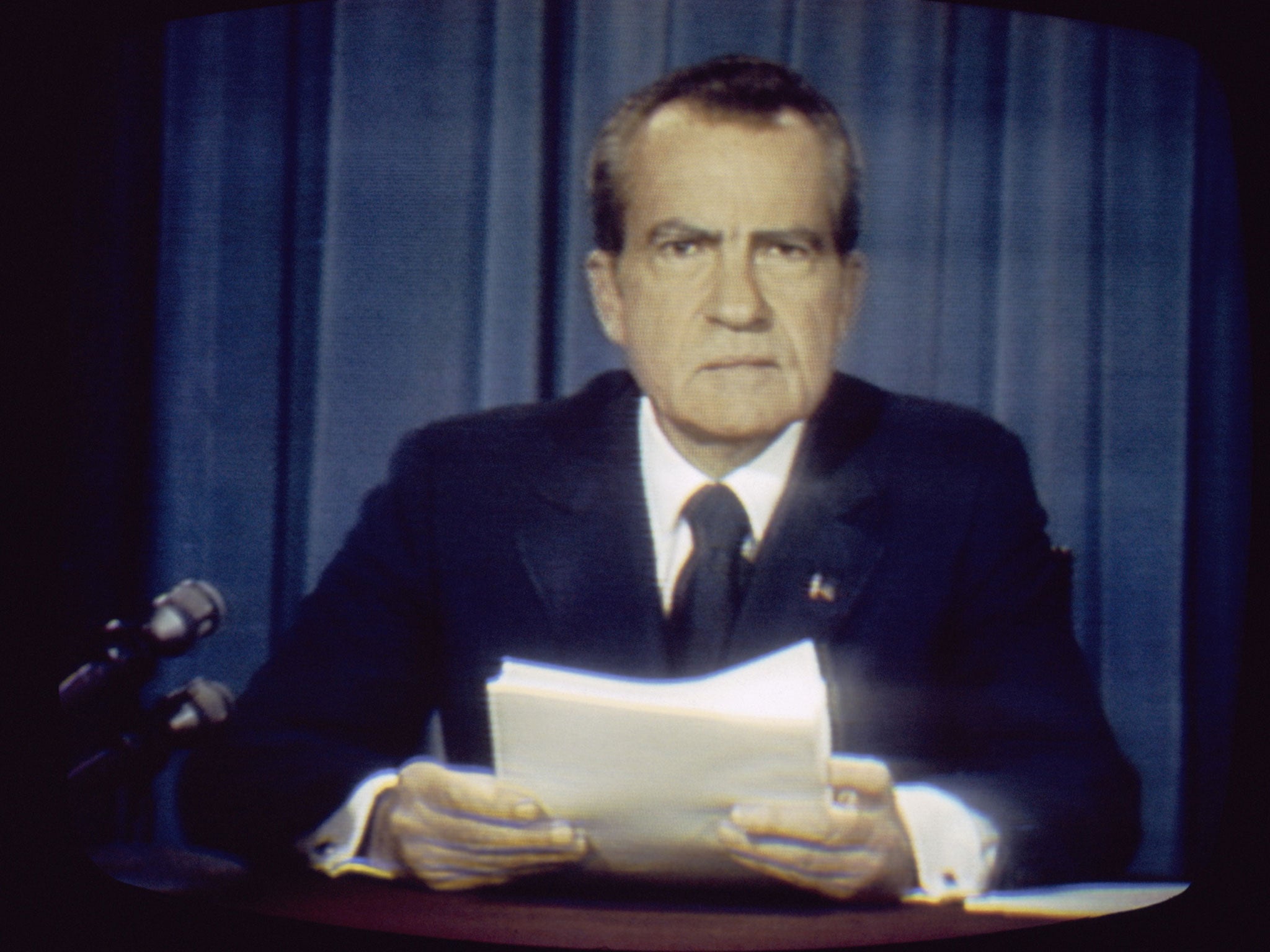Best new spy books to read from Watergate: The Hidden History to Churchill's Iceman
Barry Forshaw rounds-up the best non fiction spy releases this month

Your support helps us to tell the story
From reproductive rights to climate change to Big Tech, The Independent is on the ground when the story is developing. Whether it's investigating the financials of Elon Musk's pro-Trump PAC or producing our latest documentary, 'The A Word', which shines a light on the American women fighting for reproductive rights, we know how important it is to parse out the facts from the messaging.
At such a critical moment in US history, we need reporters on the ground. Your donation allows us to keep sending journalists to speak to both sides of the story.
The Independent is trusted by Americans across the entire political spectrum. And unlike many other quality news outlets, we choose not to lock Americans out of our reporting and analysis with paywalls. We believe quality journalism should be available to everyone, paid for by those who can afford it.
Your support makes all the difference.Unlike fiction (which demands at least a modicum of narrative skill from a writer), non-fiction can still do its job - which is to inform - if the prose is a touch on the leaden side. Nothing plodding, however, about the well-written books discussed below (though at least two are over-long for their subjects), and the fact that they all touch on the ever-fascinating art of espionage doesn't hurt.
Neither, for that matter, does eccentricity, which is at the heart of Henry Hemming’s Churchill's Iceman: The True Story of Geoffrey Pyke: Genius, Fugitive, Spy (Preface, £20). Pyke is an unregarded British hero who may emerge from the shadows after Hemming’s excavation job. Bizarre behaviour ran in his family; he was the cousin of the gesticulating TV science populariser Magnus Pyke. After Cambridge -- where he was likened to Einstein -- he made a speciality of taking unconventional approaches to problems of science and he was the first escapee of the First World War after evading German government security before he was arrested in Berlin. Later, he realised that a second world war was inevitable, and organised a phoney poll of Germans to see if they really supported Hitler's burgeoning ambition, somehow evading being snared by the Gestapo. After the invasion of Poland, he began to be listened to by those who counted; he suggested sending guerrillas equipped to deal with snowbound conditions behind enemy lines in Norway, an idea taken up by Mountbatten and approved of by Churchill. One of his concepts was truly outrageous – giant aircraft carriers made out of ice reinforced with woodpulp, an idea again applauded by Mountbatten and Churchill, but never realised. However, his often bizarre behaviour and more outrageous schemes meant that he was finally dismissed and discredited, leading to his suicide in 1948. Hemmings’ exhaustively researched (if a tad over-detailed) volume throws fascinating light on a forgotten hero of the Second World War.
Jean Findlay has chosen another eccentric – but better-known -- subject for an equally intriguing biography. The title of Chasing Lost Time: The Life of CK Scott Moncrieff, Soldier, Spy and Translator (Chatto, £25) makes reference to the writer’s best-known claim to fame -- as the first translator of Marcel Proust. But Scott Moncrieff had a distinguished career in the First World War and was a truly prismatic personality: military man, Catholic convert, author of religious poetry and an uninhibited homosexual who wrote outrageously explicit sexual material that shocked even DH Lawrence. Findlay describes Scott Moncrieff's activities as a spy in Mussolini’s Italy, but his bravery in an earlier era won him no friends among such poets as Siegfried Sassoon, who felt that Scott Moncrieff's position in the War Office meant that he should have protected Wilfred Owen (whom he had seduced) from a death on the battlefield. If Findlay is finally not able to persuade us that Scott Moncrieff's other lives are as significant as his literary endeavours, this is still a revealing portrait of an extraordinary man.
Nigel West's imperious personal manner when commenting on matters of espionage is hardly winning, but there is no gainsaying his authority in this area. MI5 in the Great War (Biteback, £25) fillets the 10 volumes compiled on the orders of the director-general of MI5 to document the organisation’s role in neutralising the German spy network in Britain – and in infiltrating agents throughout Europe. Most of us are unlikely to read the lengthy originals, so this précis is just the ticket, and has the feel of fictional adventure.
As does The Jail Busters: The Secret Story of MI6, The French Resistance & Operation Jericho by Robert Lyman (Quercus, £20), detailing the precision strike by mosquito fighter-bombers to crack the prison holding members of the French Resistance; though expertly rendered by Lyman, the incident itself is a touch slender for an entire book.
The doorstop-sized record by historian Lamar Waldron, Watergate: The Hidden History; Nixon, the Mafia and the CIA (Scribe, £30), draws on recently declassified CIA and FBI records. Waldron provides much new information on the involvement of the Mafia, and assassination attempts on Fidel Castro are tied into Richard Nixon when he was vice president; even at this historical distance, it’s incendiary stuff.
Join our commenting forum
Join thought-provoking conversations, follow other Independent readers and see their replies
Comments